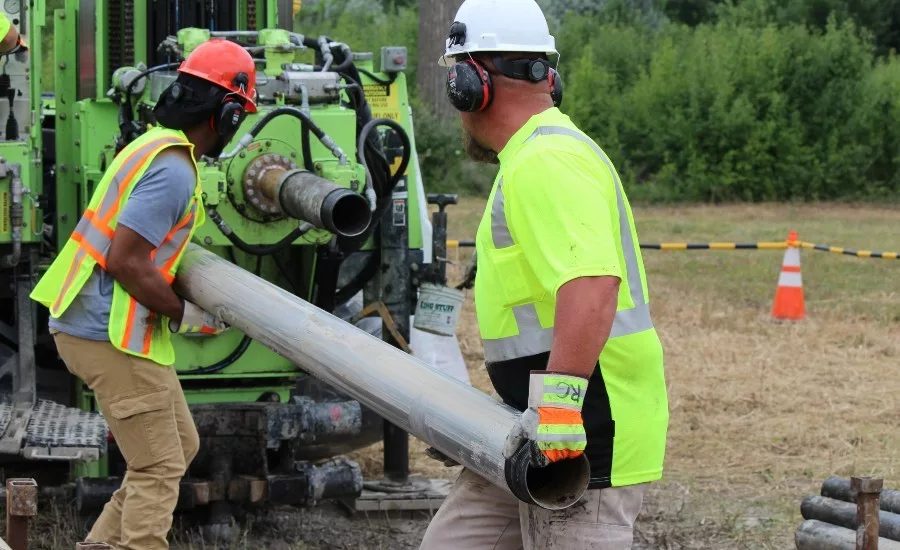All Crewed Up
Leverage Internal Development to Grow Drillers from Within
Fight War for Drilling Talent with Mentorships, Job Shadowing

Knowledge transfer is critical in hand-on fields like drilling. Consider pairing newer and veteran crewmembers for job shadowing or mentoring. Source: Cascade Environmental
In today’s article, I’ll walk you through some simple best practices you can implement to create a culture where employees can learn, develop and thrive into top performers.
Mentorship Programs
Knowledge transfer is crucial in the drilling industry. Our workforce is heavily comprised of Baby Boomers and Generation X employees thinking about (or already approaching) retirement. Mentorship programs encourage organizations to pair seasoned, experienced drillers with entry-level employees to increase knowledge sharing and overall learning.
Mentorship programs offer significant benefits to both the mentor and mentee:
- Increased confidence for the mentee as their skills improve
- Clear professional development paths that keep employees engaged
- Stronger relationship and team building among drilling crews
- Practical, on-the-job experience that results in more impactful learning
- A sense of ownership and pride for more experienced drillers
Job Shadowing
Job shadowing is another strategy that has gained momentum over the past 5 years as the more experienced generation begins to exit the workforce. This practice allows newer employees to “shadow” (or follow and closely observe) the job performance of a more experienced employee.
This concept is particularly useful in the drilling industry, as many of the practices and procedures in the field can vary depending on the site, project, type of drilling equipment used, drilling depth and other factors. Because there are so many variables at play, employees can experience (in real time) how those seasoned drillers handle situations.
Job shadowing is an excellent complement to a well-development mentorship program! Once you pair mentors and mentees, you can easily implement a job shadowing practice.
Internal Training Programs
Our workforce is heavily comprised of Baby Boomers and Generation X employees thinking about (or already approaching) retirement.
We’re all familiar with the various external training programs available in our industry. Think of online options for drillers or pump installers from the National Ground Water Association (NGWA) or the International School of Well Drilling (ISWD), or of in-person courses with the National Drilling Association (NDA) or at other industry events. But people commonly overlook internal learning and development opportunities. These programs, using your own organization’s resources and personnel, can provide knowledge and expertise to entry-level employees. While they may require time and financial commitment up front to establish, they can have a tremendous return on investment long-term. A well thought out internal training program for drillers requires stakeholder participation and engagement for success.
Skill-Based Leveling
The concept of recognizing and rewarding employees for demonstrating competency in specific skills is gaining in popularity, particularly in the drilling world. So much of a driller’s job involves executing on specific tasks in a skillful, methodical manner. It makes sense to utilize programs where employees can “level up” — whether in terms of compensation or title — when they master a specific skill.
At the end of the day, we all want to create an organization where our employees can grow and develop into lifelong drilling professionals. Leveraging these internal development strategies (or even just one of these strategies) will help set your organization apart from other drilling companies and pave the way toward creating an experienced, productive workforce.
Looking for a reprint of this article?
From high-res PDFs to custom plaques, order your copy today!






